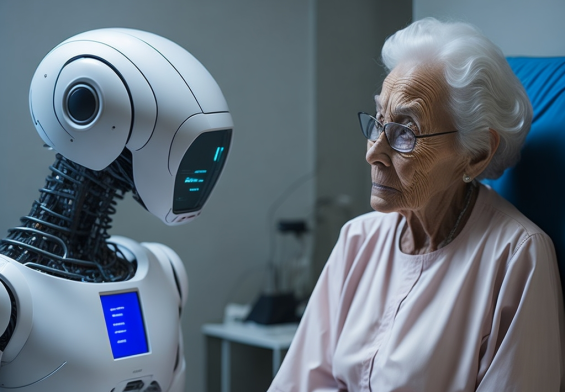In the heart of Virginia, a significant change is taking shape in the realm of healthcare for veterans. Known for its rich history and diverse population, Virginia is now becoming a hub for specialized home care services tailored specifically for veterans. This burgeoning market is a testament to the state’s commitment to its veteran population, addressing their unique needs and challenges with compassion and innovation.
Virginia Veteran Home Care: A Growing Necessity
The necessity for specialized home care for veterans in Virginia is becoming increasingly apparent. In a state with a significant veteran population, the diverse and complex needs of these heroes are prompting a shift towards more tailored care services. This necessity is underpinned by the unique health challenges veterans face, such as PTSD, TBI, and other service-related injuries. These conditions often require specialized treatment plans and rehabilitation services that go beyond standard care. Moreover, the aging veteran population in areas like Richmond, Norfolk, and Arlington is experiencing typical age-related issues compounded by their service experiences. This dual challenge necessitates a home care approach that is both comprehensive and sensitive to the specific needs of veterans.
Furthermore, the geography of Virginia presents its own set of challenges. Veterans living in rural areas may not have easy access to VA hospitals or specialized care centers. Home care services become crucial in these scenarios, providing necessary health care right at the veterans’ residences. This approach not only ensures continuity of care but also addresses the issue of accessibility, making health care more inclusive for all veterans, regardless of their location within the state. The growth of home care services in Virginia is also a response to a broader trend of aging in place, where seniors, including veterans, prefer to stay in their homes while receiving care.
Specialized Programs and Agencies
In Virginia, specialized programs and agencies are playing a pivotal role in addressing the specific needs of veterans through customized home care services. These programs often target key areas such as mental health, physical rehabilitation, and social isolation, which are common issues faced by veterans. For instance, agencies in Richmond are known for their mental health counseling programs, which are crucial in addressing PTSD and other mental health issues common among veterans. These programs offer therapies and support that are tailored to the unique psychological challenges faced by those who have served in the military.
In Norfolk, the focus is on providing physical rehabilitation services to veterans who have suffered injuries or have mobility issues due to their time in service. These specialized services include physical therapy, occupational therapy, and other rehabilitative practices, which are essential for helping veterans regain independence and improve their quality of life. Additionally, in Arlington and other urban centers, there is a growing emphasis on combating social isolation among veterans. Programs in these areas leverage community events, support groups, and technology to keep veterans connected with their peers and the community, thereby reducing feelings of loneliness and isolation.
The Role of VA Benefits and Community Support
VA benefits are a cornerstone in supporting the specialized home care services for veterans in Virginia. These benefits provide vital funding and resources that make specialized care accessible to veterans. This includes covering costs for home health care, specialized therapy sessions, and even home modifications for disabled veterans. The VA’s comprehensive approach ensures that veterans receive not just medical care but also support for their overall well-being. Programs such as the VA’s Skilled Home Health Care service offer short-term care for veterans transitioning from hospital stays to their homes, covering a range of skilled services like nursing, physical therapy, and case management.
Community support also plays a critical role in supplementing the care provided through VA benefits. Local organizations and volunteer groups often collaborate with home care agencies to provide additional services and support. These community resources can include transportation assistance, meal deliveries, and companionship programs, which are particularly beneficial for aging veterans and those living in remote or rural areas. Additionally, caregiver support groups and community-based programs provide a network of support, not just for veterans but also for their families and caregivers, creating a holistic care environment that extends beyond clinical needs.
Navigating Challenges: Rural Veterans and Accessibility
Addressing the challenges faced by rural veterans in Virginia is a critical aspect of expanding specialized home care services. Veterans living in these areas often encounter significant barriers to accessing quality healthcare due to the long distances from VA hospitals and specialty care centers. To bridge this gap, home care programs are increasingly focusing on outreach to these remote locations. This includes deploying mobile health units and telehealth services, which bring medical care, counseling, and other necessary services directly to the veterans’ homes. Telehealth, in particular, has emerged as a vital tool, enabling veterans to have virtual consultations and therapy sessions, thereby overcoming geographical barriers.
In addition, transportation assistance programs are being developed to help rural veterans travel to medical appointments and access other essential services. These programs are crucial in ensuring that veterans receive consistent and uninterrupted care. Community collaborations play a significant role here, with local organizations and volunteers stepping in to provide transportation and support. Such initiatives not only address the logistical challenges but also foster a sense of community and belonging among veterans, reducing the isolation that often comes with living in rural areas.
The Future of Veteran-Specific Home Care in Virginia
Looking to the future, the landscape of veteran-specific in-home care in Virginia is poised for significant advancements. One key area of development is the integration of advanced technologies in home care services. This includes the use of wearable health devices for monitoring vital signs and AI-driven platforms for personalized care management. These technologies can greatly enhance the quality of care, offering real-time health monitoring and more responsive care adjustments.
Another future trend is the increasing emphasis on holistic care approaches. This involves not just addressing physical health needs but also focusing on mental and emotional well-being. Programs are likely to incorporate therapies like mindfulness, yoga, and other wellness practices, tailored to the unique experiences and preferences of veterans. Additionally, as the veteran population continues to age, there will be a growing need for services that cater to age-related conditions like dementia and Alzheimer’s, requiring specialized care plans and trained professionals.
Collaborations between the VA, private healthcare providers, and community organizations will be crucial in shaping this future. These partnerships will enable the pooling of resources, expertise, and innovative practices, ensuring that the home care services available to veterans in Virginia are not only comprehensive but also at the forefront of healthcare innovation. As these trends evolve, Virginia’s veteran home care system will continue to serve as a model of compassionate, specialized care for veterans nationwide.
Resources:




